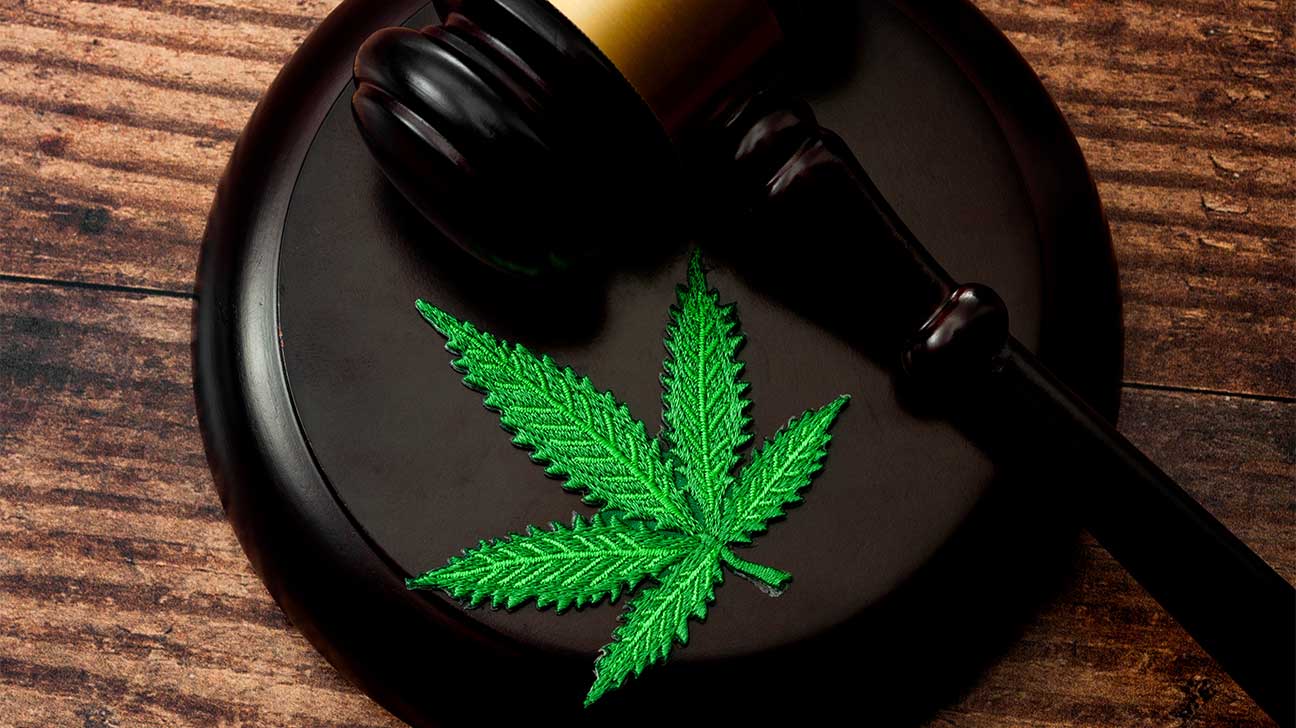
Marijuana, also known as cannabis, weed, or pot, is a psychoactive drug that comes from the cannabis plant. It can be smoked, vaped, or ingested orally — for example, in edible form.
While marijuana is illegal on a federal level, state laws surrounding the possession, manufacturing, sale, and use of marijuana have changed at a rapid pace in recent years.
Is Marijuana Legal In Every State?
No. Several states prohibit the use, possession, production, or sale of all marijuana, while many others have only legalized medical marijuana use for adults and minors who qualify.
Terms to know:
- legalization: This means that a once-banned drug for Americans has been made legal.
- decriminalization: This means that a drug is still illegal, but you will no longer be prosecuted or charged with a crime for having a specified amount of it.
- medical marijuana: This refers to the prescribed use of marijuana as a medical treatment for certain health conditions (e.g. cancer, multiple sclerosis).
- recreational marijuana: This refers to the personal,or recreational use of marijuana (i.e. not a medical treatment for a health condition).
Under federal law, marijuana today is still illegal due to its classification as a Schedule I drug under the Controlled Substances Act (CSA), passed by the U.S. Congress in 1970.
State governments, however, are able to legalize or decriminalize marijuana within their respective states. City and county governments can also pass marijuana-related laws.
List Of States Where All Marijuana Use Is Illegal
As of June 2022, several states in the U.S. still ban all marijuana use, including adult-use recreational marijuana and medical marijuana use.
States where marijuana is fully illegal include:
- **Georgia
- Idaho
- **Indiana
- **Iowa
- Kansas
- **Kentucky
- *Nebraska
- *North Carolina
- South Carolina
- **Tennessee
- **Texas
- **Wisconsin
- Wyoming
*Marijuana is illegal, but decriminalized
**CBD oil is legal for medical use
States Where Only Recreational Marijuana Is Illegal
A larger number of states now allow for medical marijuana use, but still ban recreational marijuana use.
As of February 2022, 37 states and three U.S. territories allow for the medical use of cannabis products, according to the National Conference of State Legislatures (NCSL).
States where recreational marijuana remains illegal include:
- Alabama
- Arkansas
- Delaware
- Florida
- Hawaii
- Idaho
- Kansas
- Louisiana
- Maryland
- Minnesota
- Mississippi
- Missouri
- New Hampshire
- North Dakota
- Ohio
- Oklahoma
- Pennsylvania
- South Carolina
- South Dakota
- Utah
- West Virginia
- Wyoming
Which States Have Legalized Marijuana?
California was the first state to legalize medical marijuana use in 1996. That state, and many others, are now home to a number of legal, licensed marijuana dispensaries.
Over the last 20 years, a number of states have followed California’s lead in fully legalizing marijuana through a ballot initiative or through the state legislative process.
States where marijuana is fully legal include:
- Alaska
- Arizona
- California
- Colorado
- Connecticut
- District of Columbia (Washington D.C.)
- Illinois
- Maine
- Massachusetts
- Michigan
- Montana
- Nevada
- New Jersey
- New Mexico
- New York
- Oregon
- Rhode Island
- Vermont
- Virginia
- Washington
Why Is Marijuana Illegal In Some States?
Marijuana is illegal in some states and on a federal level due to its classification as a Schedule I drug.
Still, recent years have seen a growing decriminalization/legalization movement, whereby states have opted to change their position on the legality of marijuana on a state level.
Why Is Marijuana A Schedule I Drug?
Schedule I is one of five drug schedules (I, II, III, IV, V) that was first created under the Controlled Substances Act of 1970.
That’s a federal U.S. drug policy that regulates substance use, possession, cultivation, and distribution.
Schedule I drugs are recognized by the government as having a high potential for abuse, dependency, and no accepted medical use.
Is Marijuana Dangerous?
Marijuana is not inherently dangerous. While its use can come with certain risks, this is true for all psychoactive substances, including many prescription drugs.
Some potential risks of marijuana use include:
- tolerance and dependence
- altered mental state
- adverse effects on pregnancy
- decreased coordination
- slowed reaction times
- lung damage (if smoked chronically)
- onset of psychosis (in those with a genetic predisposition)
However, marijuana does have some chemical properties that have shown to be beneficial for certain medical and mental health conditions, including PTSD.
That’s why it can sometimes be used as a medical treatment.
Is Marijuana Addictive?
Marijuana can cause dependence and become addictive if it is misused chronically.
When and if someone does become addicted to marijuana, it may be difficult for them to stop without professional help.
Signs of marijuana addiction might include:
- using marijuana more than intended
- increased frequency of use
- feeling reliant on marijuana
- craving marijuana
- using marijuana in high-risk situations (e.g. driving)
- continuing to use marijuana despite negative consequences to health, work, school, or relationships
- unsuccessful attempts to reduce/stop marijuana use
- experiencing withdrawal symptoms within hours of last use
Marijuana addiction, like any other drug addiction, can be debilitating without treatment, and may have serious consequences to health and quality of life.
Find Treatment For Marijuana Dependence
Treatment for marijuana addiction will generally begin with detoxification, also known as detox, to help with symptoms of marijuana withdrawal.
To find marijuana detox, or an addiction treatment program near you, call our helpline for more information today.
Article Sources- Centers for Disease Control and Prevention (CDC) — Addiction | Health Effects | Marijuana
https://www.cdc.gov/marijuana/health-effects/addiction.html - DISA — MAP OF MARIJUANA LEGALITY BY STATE
https://disa.com/map-of-marijuana-legality-by-state - National Conference of State Legislatures (NCSL) — State Medical Cannabis Laws
https://www.ncsl.org/research/health/state-medical-marijuana-laws.aspx


